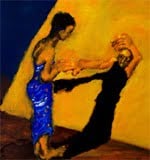 First, a TEDx talk about ACT therapy or approach
First, a TEDx talk about ACT therapy or approach
Said a forum member:
All the contemplative traditions I am familiar with, Buddhism, Taoism, Yoga, kabbalah++ agree that it is the resistance towards feeling uncomfortable emotions that most increase them. In Buddhism they separate pain from suffering.
Pain would be the initial fear you feel in a social situation. Suffering arises only as a consequence of resisting pain. So by thinking, “Oh no, I feel fear, that is just horrible, oh no I can`t possibly live with this, go away,” etc. you are sort of mounting an attack of tension against the fear that in fact increases it tenfold.
That way an initial often small fear turns into a full-scale anxiety attack. In addition to amplifying the bad feeling, this strategy also keeps the bad feeling around. If one allows oneself to feel whatever negative emotion arises, it will normally just pass in a while, or at least become much less.
This view on how to relate to emotions is now being supported in the western scientific community through the research into the therapies “Acceptance and Commitment Therapy” (ACT) and “Mindfulness-Based Cognitive Therapy.” Both these therapies rely mainly on this one psychological principle, explained above. Both therapies now have tons of studies showing they offer far, far better results than other therapies, such as conventional cognitive therapy (which is also very good) and psychotherapy (which can sometimes do good).
There is a book called The Mindfulness and Acceptance Workbook for Anxiety, which is well worth reading. Other books on MBCT or ACT are probably good as well.
I would also read the following articles at www.shinzen.org: “A Pain-Processing Algorithm,” a synopsis of Shinzen’s book Break Through Pain (to understand the pain vs suffering distinction), “The Panic Cycle” and the “Escaping Into Life” and “Equanimity” articles. These will give you a good understanding of what I’ve tried to say.
Here’s what another forum member said:
Basically, what I’m trying to do with my new shallow understanding of ACT is…well, it’s best described with another acronym, AVC.
A= Acceptance…this is acceptance of sexual thoughts, physical urges, the fact I’m an addict. This doesn’t mean that, like, a flashback will pop in my mind and I’m like, “OK, awesome. Let’s explore that some more.” It’s more like, “Oh, there’s a vivid flashbacks, cool, it’s not like I’m a bad person or that I’ve relapsed because I’ve allowed it to appear. Plus it’ll pass.” And accepting physical urges has helped a lot too. Like, I’ll accidentally come across a cue, and I’ll notice that my heart drops, and that I get a little shock to the groin. In this situation, I used to be like, “Well, I got turned on and have a boner, which means that I probably already had a big dopamine rush which means I might as well relapse.” Now I’m more like, “Whoa, that turned me on. Neat how I have all these subtle physical reactions to it. Also, it’s not like I’ve relapsed because I accidentally saw a pic of some cutie for one second and got aroused, it means I’m a guy who has a libido.”
V=values. I wrote out a little statement of the kind of person I want to be remembered as, and I keep that statement in my pocket and touch it when I need a reminder (folksy, I know, but it’s helped). So, I’ll see a cue or have a sexual thought, accept it (A), and then, before acting on it, I remind myself of my values (V), and then I…
C= committed action. Or, in my case, committed non-action. I’ve accepted the fact that I’m human and that I can get turned on (A), then I reminded myself that, in order to be the person I want to be, I can’t be getting off to porn anymore (V). Then I take some committed non-action and just, well, don’t look at and get off to porn. Actually, I’ve had some nice moments where I’m lying in bed after being hit by a big cue, and I’m like, “Wow, even though I’m just laying here on my bed, the fact that I’m not getting up and turning on my laptop is actually a radical act of self-care.”
Visit http://www.actmindfully.com.au/acceptance_&_commitment_therapy
I found the site very comprehensive. Kinda like ACT For Dummies. I found the “six core principals of ACT” list particularly helpful. (As you can see, three of those principals made their way into my strategy).
He added:
I kept reminding myself that cues are inevitable and it’s how you deal with them. Speaking of, I came across this PT post that was pretty helpful. http://www.psychologytoday.com/blog/ulterior-motives/201110/harness-the-power-temptation (I’m not sure if there are any cues on that page to the people interested in looking, so be careful).
The article basically confirms the idea that preparing for obstacles and cues is a good idea. I’ve been all about ACT therapy lately, and I found this thing on a website that helps you set a goal while also thinking of the possible obstacles that can get in your way. However, it seems to only think that private events (thoughts, sensations, feelings, urges) can get in the way. So now I’m choosing to fill it out and also predicting possibly cues and thinking how I’ll deal with them (eg. TV commercials, steamy scenes in TV shows, steamy scenes in movies, ads online, verbal cues online, verbal cues in books, visual cues on billboards, etc.)
http://www.thehappinesstrap.com/upimages/Willingness_and_Action_Plan.pdf